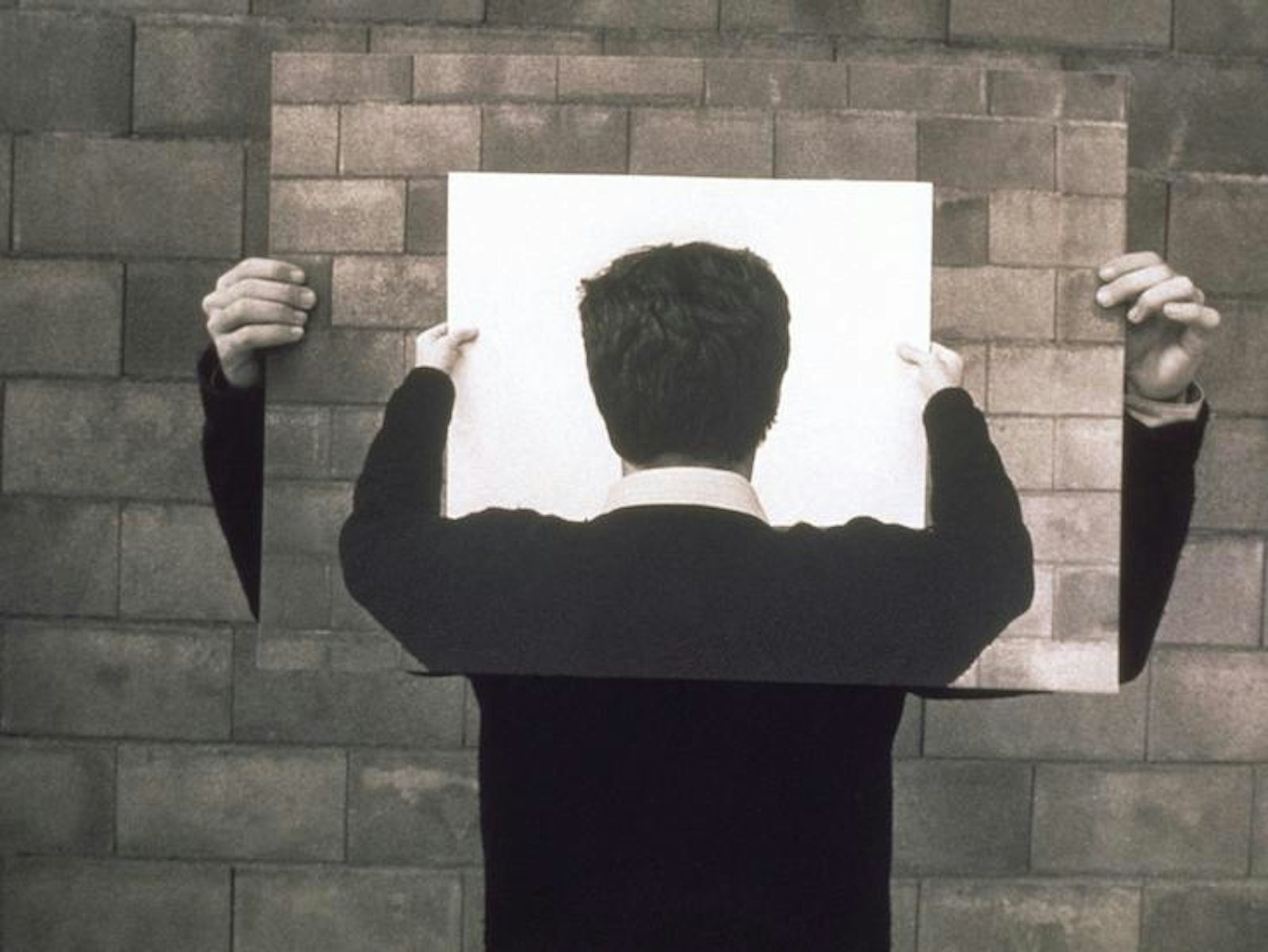In his rather untidy office at Goldsmiths, University of London, the cheerful and vaguely rumpled Gustav Kuhn grabs what looks like a wire-frame pyramid off of an otherwise empty shelf. Holding it gently, his Swiss-English accent crackling over our transatlantic Skype connection, he says, “I tried to investigate pyramid power—the idea was that you could put a razor blade or food under the pyramid and the blade would sharpen or the food would stay preserved.” In San Francisco, I raise an eyebrow. Kuhn grins in response, pauses, and baits my question in a way only a professor can. But before I can ask, he places the pyramid back on the shelf, chuckles to himself, and says, “It doesn’t work, of course. Real magic doesn’t exist.”
Kuhn should know. Born in Aarau, Switzerland in 1974, he became seriously interested in magic at a young age. He trained under American magician Jim Cellini, student of legendary master magician Slydini. Using “Kuhnini” as a stage name would have sounded a bit weird, says Kuhn, but he assured me this wasn’t the reason he ultimately shunned professional performing. It was because he wanted to use magic, not to trick the human mind, but to study it.
Using the techniques of magicians, which exploit cognitive flaws, isn’t that different from how vision scientists use failures of perception—such as the Ebbinghaus illusion and the checker shadow illusion—to illuminate the neurology of how we see. Attention, awareness, memory, and perhaps most interestingly, belief-formation—including suggestion and social influence—are vulnerable to the psychological subtleties magicians employ. Kuhn and his fellow researchers recently published a special issue on the topic—the “Psychology of Magic and the Magic of Psychology,” as they call it, which comprises 14 studies. “Magicians have a large and robust set of effects that most researchers rarely exploit,” they write.
In one of these studies, two of Kuhn’s colleagues at Goldsmiths, Krissy Wilson and Christopher C. French, investigated how encountering magic can influence beliefs about the nature of reality. They had an alleged psychic—really, a magician—bend a key in his hand by pretending to use telekinesis. His apparent power over the key was effected, of course, through sleight-of-hand. But for one group of spectating subjects, the psychic attempts something more daring: He places the key on a table and vocally claims that he’s still bending it from afar. Of course, the key did not continue to bend on the table. Still, 33 percent of the subjects who heard the psychic’s suggestion reported that the key did continue to bend, compared to none in the control group who did not hear the suggestion. This percentage of credulous spectators almost doubled when the psychic’s confederate, posing as a spectator, validated the psychic’s suggestion by falsely claiming to see the key bending.
Why we are so vulnerable to this kind of magical thinking is especially important to understand, says Kuhn, because the results shed light on the disconcerting power of eyewitness testimony on others’ beliefs and the frailty of memory recall. All of us, even the most skeptical and informed, are susceptible to the false impressions magicians’ techniques induce—especially when they have a psychological veneer. Take the English television and stage performer Derren Brown, for example. “His genius has been to reinvent stage magic as a form of advanced psychology, in which he can just about plausibly claim to be drawing on genuine psychological techniques—the study of body language, the power of suggestion—rather than relying entirely on tricks, leaving the audience to try to work out which is which,” says The Guardian. Kuhn says: “I find Derren Brown a very tricky one because he’s great, one of the best magicians around—but of course he does a massive disservice to psychology. Derren can convince people that what he can do is real.”
After watching Brown’s show, according to Kuhn, his supervisor approached him and said, “Isn’t it amazing! These priming effects are so powerful—so powerful!”
That disservice stems from how Brown includes psychology in his act, playing on the rising general awareness of our own cognitive deficits to sell a believable—but, presumably, false—scientific back-story to his magic. Kuhn’s PhD supervisor, for example, one of the smartest people Kuhn knew and an expert on priming and unconscious learning, fell, like so many, under Brown’s spell. What got him was an episode of Brown’s TV series Trick of the Mind. In it, Brown invites two members of a London advertising agency to a secret location and appears to subliminally influence them to come up with a name, a tagline, and a logo for an imagined taxidermy business. They end up calling it “Animal Heaven: The Best Place for Dead Animals.” The logos they created consisted of a stuffed grizzly bear holding a lyre, zoo gates resembling the gates of heaven, and angel wings above the business name. Then, unbelievably, Brown reveals an almost identical name, tagline, and logo. The two advertisers assure us Brown’s version—“Creature Heaven: Where the Best Dead Animals Go,” complete with a bear holding a lyre, angel wings, and pearly zoo gates—had been in an envelope in front of them the entire time.
Impossible! How did he do it? The episode ends with an incredible explanation: Shown is a montage of the taxi ride the advertisers went on to get to the film location, which passes the London Zoo and has image after image of lyres, angel wings, pearly gates, and the words “Creature Heaven” in shop windows, billboards, and on the t-shirts of passers-by. After watching this, according to Kuhn, his supervisor approached him and said, “Isn’t it amazing! These priming effects are so powerful—so powerful!”
But Kuhn, knowing better, had to shake his head and say, “Look, this is a magic trick. Not psychology.” The story about priming was probably mostly fanciful, and the trick was just that—a trick. Over the years, Brown’s claims about the psychological foundation of his skills have declined drastically. As he became better known, he felt a “moral responsibility,” he says, “to find out what level of honesty is right for me as an entertainer…I didn’t want to constantly be a fraud.” Brown’s conundrum became how to legitimately exercise his “license to deceive.”
A proper science of magic could help map the boundaries of that license, by helping us understand the psychological limits—and causes—of our gullibility. It could also open a unique perspective on human nature, and on the nature of wonder itself. In a recent paper, Kuhn and Ronald Rensink, a psychologist and computer scientist at the University of British Columbia, propose a “distinct area of study concerned with the experience of wonder that results from encountering an apparently impossible event.” In another 2015 paper, they say, “Experiential states of this kind are difficult or even impossible to create in any other way” besides magic. In one 2009 study they cite, the brains of magic spectators, measured with an fMRI, activated in a similar fashion to those that witnessed events that violate causality. “Given that the failure to recognize the impossible is a likely foundation of psychotic disorders such as schizophrenia,” say Kuhn and Rensink, “such results might also lead to insights into the neurobiology of psychotic experiences.”
But of course Kuhn, who considered a career as a magician, isn’t just intrigued by the scientific or medicinal utility of the craft. “I’ve got kids and in a child’s mind, everything is possible, everything is magic,” he says. “I sometimes wonder whether magic allows you to experience that freedom again.”
Kevin Blake Ferguson is a magician and a writer based in San Francisco. Follow him on @kevinblakemagic.


























